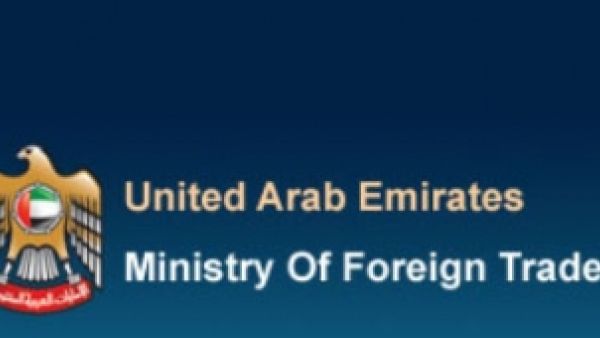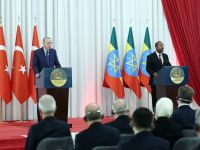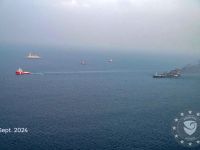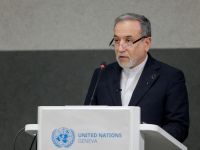MOFT holding second round of WTO Trade Policy Review Secretariat Preparatory Meetings

The Ministry of Foreign Trade (MOFT) is currently holding the second round of the UAE’s World Trade Organization (WTO) Trade Policy Review (TPR) Secretariat Preparatory Meetings with the country’s federal and local bodies.
The meetings, which began in October 30, 2011 at the Arjaan Rotana Hotel in Dubai, are scheduled to end tomorrow (Thursday, November 3, 2011) and are being held as part of the WTO’s preparations for conducting its second TPR for the UAE.
H.E. Juma Al Kait, MOFT’s Assistant Undersecretary for Foreign Trade Affairs, said that the Ministry and all related entities in the country are looking forward to cooperating with the WTO’s secretariat in order to facilitate its mission of conducting the second TPR in a manner that would reflect the remarkable achievements of the UAE in liberalizing its economy and integrating with the multilateral trade system.
The Assistant Undersecretary added that an agreement was reached with Simmons and Simmons Middle East, which is currently participating in these meetings, to provide the necessary technical and legal support for the TPR.
He noted as well that the Ministry is coordinating and facilitating meetings with concerned parties in order to examine and corroborate the information that will be included in the review.
Representing the WTO at the meetings are Advisors Angelo Silvi and Eugenia Yazano and Trade Policy Analyst Ms. Mena Hasan. The UAE side includes experts and specialists from the Ministries of Foreign Trade, Economy, Finance, Energy, Environment, and Water, as well as representatives from the Federal Customs Authority, the Emirates Authority for Standardization and Metrology Cooperation (ESMA), the Telecommunications Regulatory Authority (TRA), the Abu Dhabi National Oil Company (ADNOC), the Abu Dhabi Investment Authority (ADIA), Dubai World, Emirates Airlines, the National Transportation Authority (NTA), The UAE National Council for Tourism & Antiquities, the Abu Dhabi Tourism Authority (ADTA), the Emirates Industrial Bank (EIB), and a number of other federal and local bodies involved in the country’s foreign trade policy.
During one of the the meetings, Mr. Silvi made an introductory presentation on the mechanisms of conducting TPRs in the WTO. He explained that the organization’s goals for the reviews are to enhance the commitment of all WTO members to the rules, regulations and obligations of multilateral trade agreements; facilitate work within the multilateral trading system by increasing policy transparency and commercial activity within members; encourage the public and private sectors to discuss vital matters related to their commercial dealings; and to regularly and multilaterally evaluate the effects of decisions and internal political interferences on the foundations and tools of the international commercial order.
The advisor noted that the review will look into the degree of compliance with WTO principles and foundations among the concerned bodies and entities.
Mr. Silvi also highlighted the current status of the Second TPR of the UAE and the measures to be taken to complete it. He pointed out that the organization bases its review on two reports, the first of which is a government report presented by the member state or the reviewed commercial bloc. This report describes the commercial policies applied in the country or economic bloc being reviewed along with recent data on the reviewed entity’s developments. The second report is prepared by the General Secretariat of the WTO based on available information as well data it has gathered itself from the evaluated state.
For his part, Mr. Sultan Ahmed Darwish, MOFT’s Director of Trade Negotiations and World Trade Organization Department, said that the Ministry had recently conducted a voluntary TPR for 2010 in early preparation for the 2nd TPR, and in the process has set a new global precedent in this regard.
Mr. Darwish pointed out that the UAE’s trade policy remains one of the main pillars of national growth and development, transforming the Emirates into a global economic contender. He added that the report monitors this policy within the country’s framework of executing the visions, goals, and aspirations of the government. He explained that the government aims to achieve the highest levels of comprehensive and sustainable economic development, while also continuing to abide by its regional and international obligations.
He added that the Ministry places great value on the preparatory meetings and technical discussions with the WTO as they constitute the primary mechanism by which the organization is provided with data, statistics, and official information for use in producing the UAE’s Second TPR. The report is set to be prepared over the upcoming period and will be open to discussion at the WTO’s Geneva Headquarters before its 153 members in March of 2012.
Mr. Darweesh emphasized the importance of the 2012 TPR, explaining that it will offer the international community a detailed look into the growth and development of the UAE’s various sectors as well as its advanced economic policies. He underscored the importance of complete accuracy and objectivity in preparing the scientific data due to the report’s significant economic and political impacts on the state.
He also pointed out that the first TPR of the UAE took place at the WTO Headquarters in Geneva in April 2006, during which the Emirates was commended for its trade policy and its beneficial role in accelerating economic growth.






